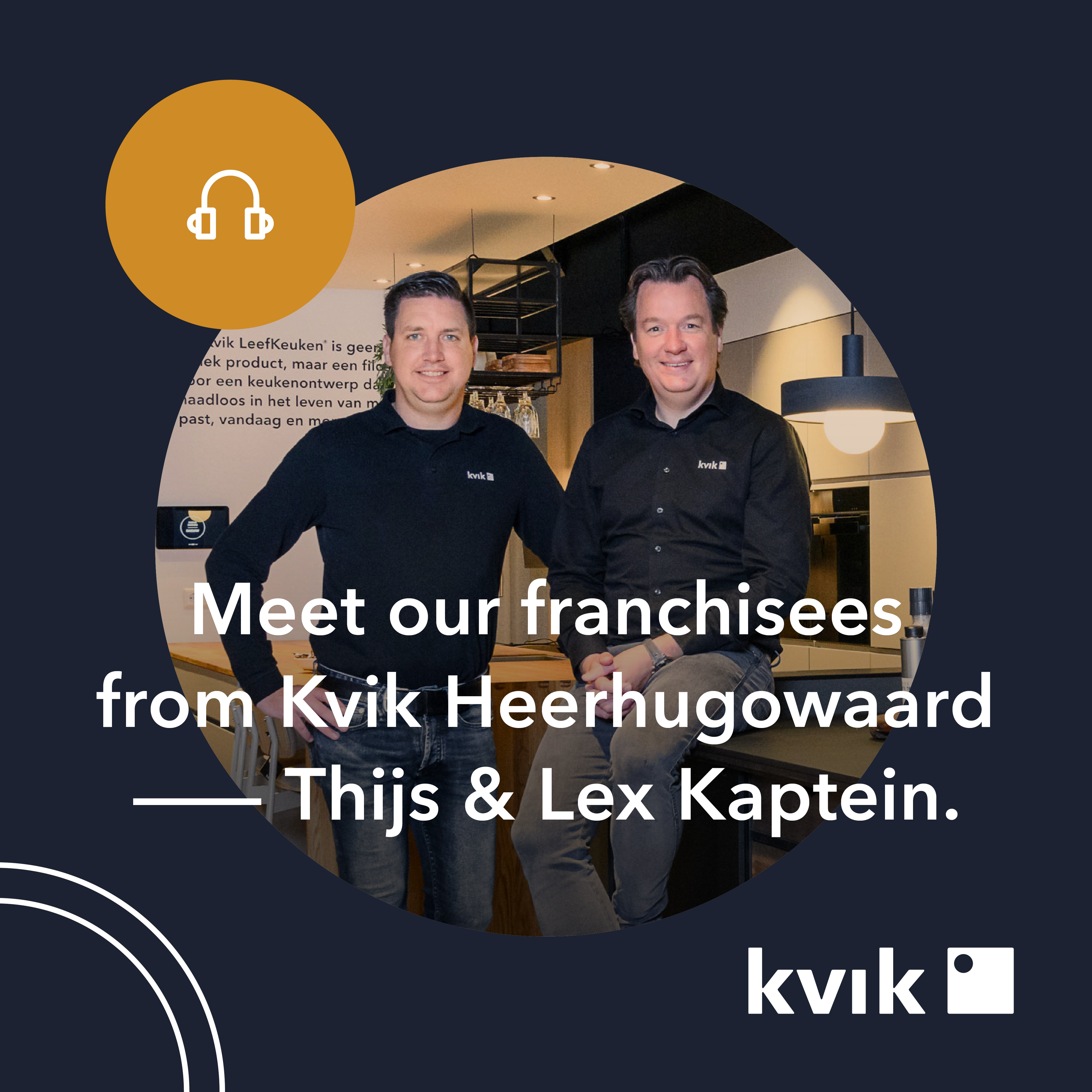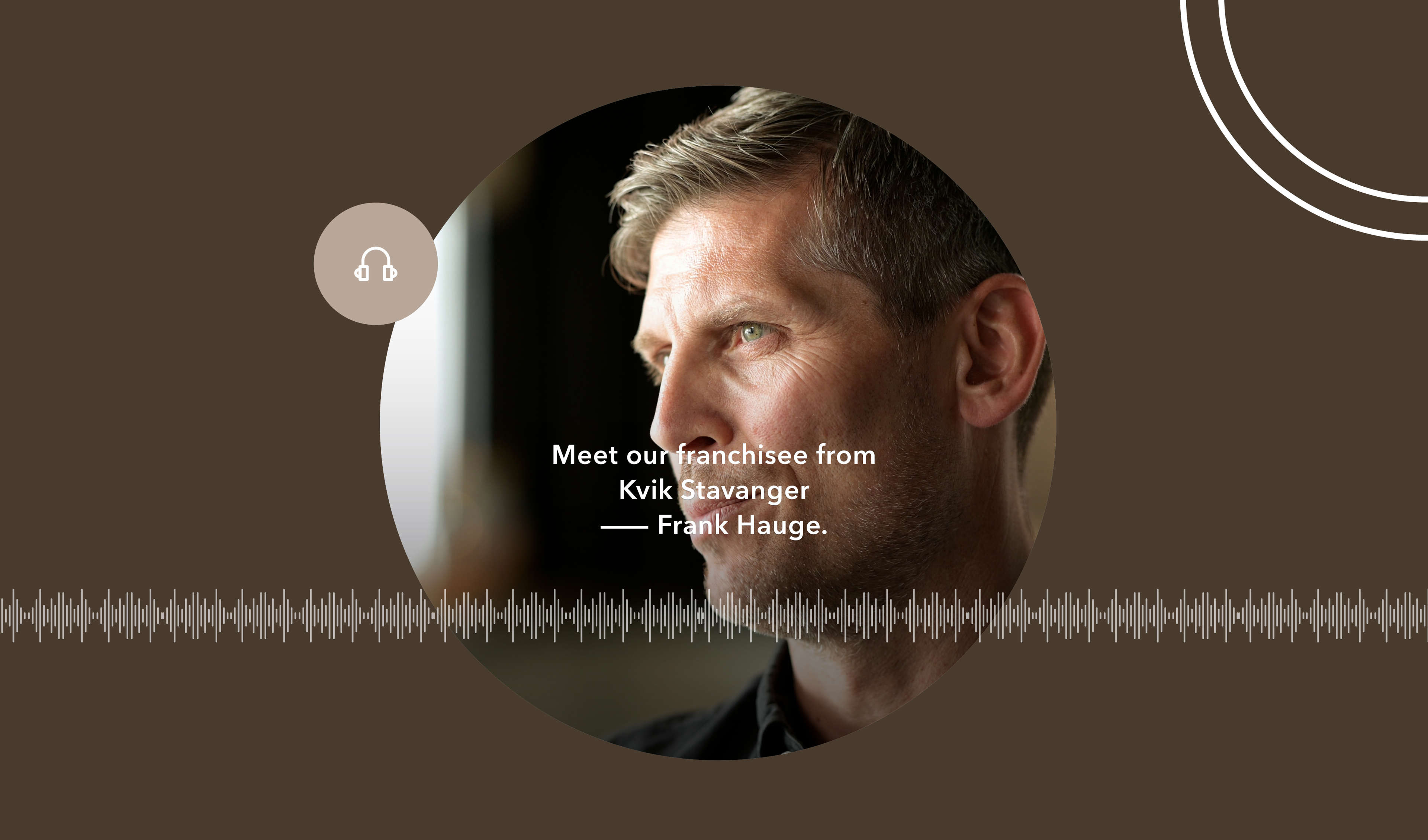
4: Meet our Franchisees — Kvik Stavanger
Welcome to The Sociable Kitchen®, a podcast by Kvik, I’m Julie Broberg. We’re back with new episodes featuring our talented franchisees. We create Danish design kitchens, bath and wardrobe and we sell through more than 180 franchise stores in 13 countries.
We have big growth ambitions and want to at least double our size in the next five years. Our franchisees come from all kinds of different backgrounds and we’re sharing some of their stories here on the podcast in the hopes of inspiring budding entrepreneurs out there. If you’re considering your own business, have a listen - maybe a Kvik franchise is right for you.
We’re visiting today with Frank Hauge, our franchisee in Stavanger, Norway. He’s owned Kvik Stavanger since 2022. He took over this successful store from the previous franchisee who had it for 17 years. We’ll hear his perspective on switching gears from his previous career, how the process of buying a Kvik franchise works and how he built a successful team.
*Please note that the text on this page is a transcript of the podcast episode.
Julie: So tell us your story…how did you end up having a Kvik shop? Do you have a kitchen background or what's your background?
Frank: Kitchen background in that way I like to prepare food. Yeah, I do. Kitchen is for me, a place where you have good experiences and where you like to be to prepare good food with your friends and family.
And my background is quite different is running retail shops and actually from the early beginning when I was just, you know, about 20 years old.
I started clothing shops in Norway in some years and this is actually the start of you know leadership, the start of retailing and and actually everything that comes along with it is about accounting. It's about marketing and you learn things step by step.
Julie: So how does that experience translate to then kitchens? I mean, kitchens, are they? They last a little longer. I mean, clothing, you expect your customers to come back in the door again next month, right? Because they because they buy something else. Kitchen is a little more…like maybe every 10-12 years that people buy a kitchen, so it's a little different animal.
Frank: That's true. There are more differences than similarities between these industries. But of course there are similarities and and I think that you work with fashion, you work with trends, at least you work with people and selling stuff is the same. Leadership is the same. So quite a lot of things you can learn. It's all the experience for, you know, heading down for in the end becoming a Kvik franchisee.
Julie: But how did you find out that Kvik was looking for? I mean, what caused you to make this shift from clothing to kitchens?
Frank: You know, I've been working with the leadership in these things and marketing and sales in like 25 years...more actually, 27 years now and I was actually in between jobs and had some time off when this opportunity came along.
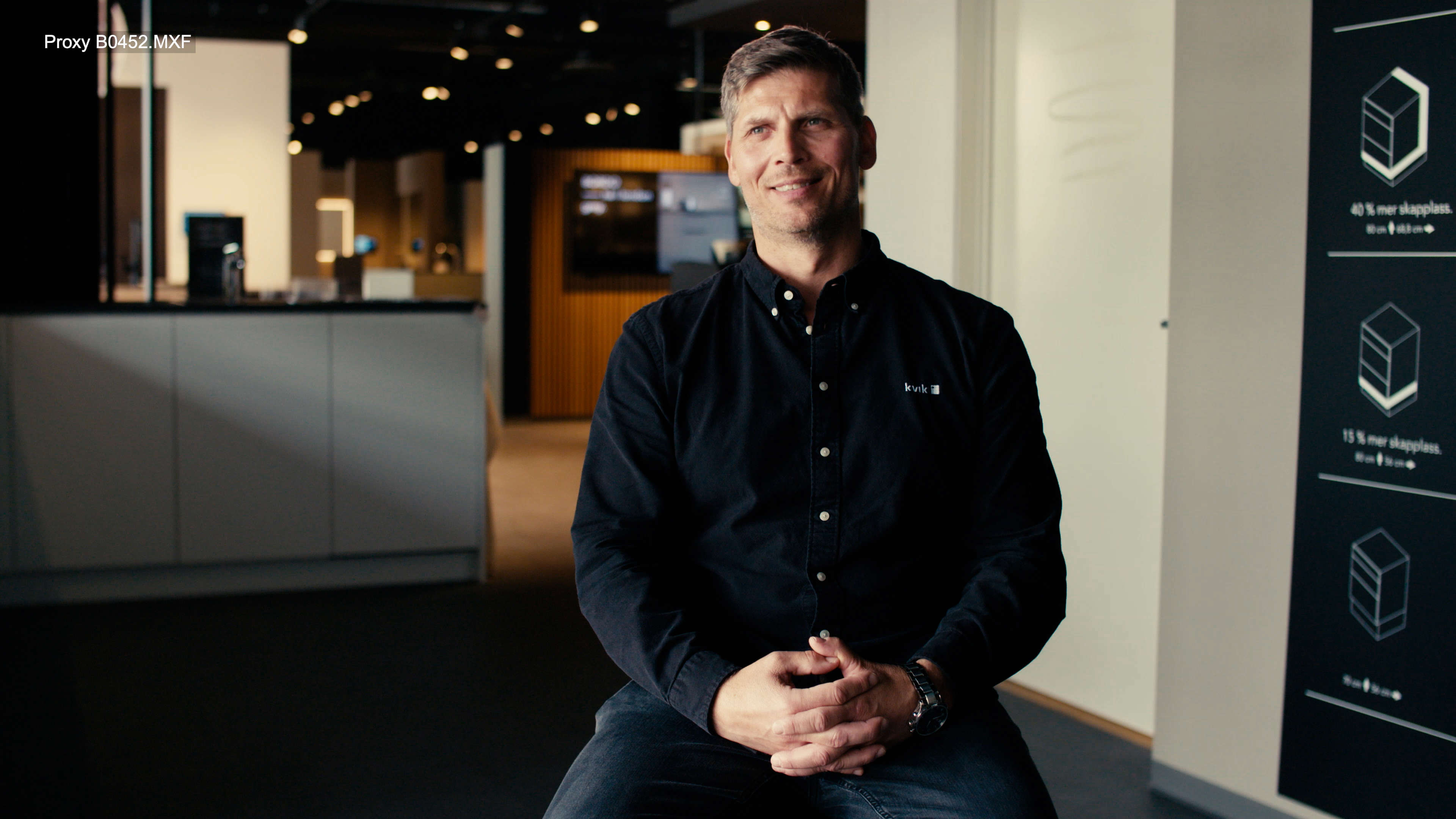
Julie: Frank was browsing a Norwegian sales site that’s kind of the equivalent of the old Craig’s List - it’s a site where you can buy anything from someone’s leftover building materials or old stereo to houses, cars and yes, even find your next job. It goes to show you that you never know when or where your next opportunity will present itself! But let’s jump back in and hear more.
Frank: I was sitting home with a cup of coffee one morning and was trawling through the Internet for jobs. You know, what is it out there? What should I do with my life now?
Julie: Did you have a mid-life crisis?
Frank: Yeah, that was on me.
Julie: So it was like “I buy a really nice sports car or I buy a franchise,” I mean...
Frank: Was it that clear? (laughs)
Julie: No, no, no, no, no.
Frank: Yeah, I think I think you're in some way right, because not maybe a mid-life crisis. But I have to laugh when you ask this because I was, you know, when you've been working so many years with some parameters that always come again. Again I have to sum it up. It’s leadership, it’s the marketing, it’s the economy, it’s sales, you have it all. And at some point you find yourself like, OK, but now it's a chance to switch. It's a chance to do something else, yeah.
Julie: If I'm gonna do it, it should be now..
Frank: True, true, you have this like moment…
And then this advertisement popped up that Kvik, wanted a new franchisee.
And this advertisement, I saw it and I thought, OK, this is it.
I've listened to quite some podcasts about what you've done before Julie, with some other franchisees. And it's the same feeling I think that they have had. If something is coming up. Something united like. You got this feeling about something, and the feeling was it was a good advertisement. It was the concept. And you go straight to the internet and you search for the website and you want to read. What is this? Because I have to admit that before I saw this advertisement, I didn't know much about Kvik, I didn't know.
Julie: No, you didn't have a Kvik kitchen already?
Frank: No. I can’t say what I had, because it’s not allowed. (laughs) Yeah, and. And you know, if you're not in the kitchen process, if you're not looking for it.
Julie: It's kind of not on your radar. You don't….
Frank: …it’s not on your radar. Yeah, it was the same for me. So I had to learn everything about it. I had to. You know, what is this? But I have heard of it. It was not top of mind. But I'd heard of it, and of course, knew it was a kitchen concept.
But not anything else about it.
Julie: Nothing more than that.
Frank: No, no, nothing more than that. So I have to check it out. But again, when I did it was the feeling. When you go into the website, you learn about it, you see how they build it up. You see how they want to show their stuff.
They’re going to sell the kitchen and the bathroom, and you get a sense that things are prepared, things are good. It's like worked through, there is something solid about it.
Things moved pretty quickly
Julie: OK. And this was sometime in like 2021. So how long did it take from when you saw that ad till you rebuilt the store in January 2022, was it?
Frank: Approximately 6 months.
Julie: Was it 6 months? OK OK.
Frank: Yeah, because I was. This was in August ‘21, I reckon the dialogue was like starting.
I've actually said this before in a short interview with Kvik that I sent my application in the evening and like 9:05 the next morning she called me.
Julie: That was a very quick reaction. You must have really looked good, right?
Frank: Yeah (laughs). It was what I thought. We can stop the podcast now. (laughs)
Julie: But I bet you did. I mean, because those are the things that are important, right. Having that retail background and having that leadership background, I think those are two of the biggest keys. I've talked with Holger who is in charge of this - he thinks we can teach you about kitchens, but having that experience in place is really the key to being successful.
Frank: I think this is the same case with the designers because when I hire new ones and also in other jobs, I've had sales jobs and if you hire salespersons, it's like you can always teach them what you want to sell. It’s no big deal. You can teach them everything about it, but you can't teach them how to deal with people and how to, you know, get things sold in the way of relations and so on. This is something you learn through life or it's like environmental, maybe.
Julie: Or maybe that you have in you a little.
Frank: Yeah, maybe it's like genes and something. Also, I think it's the combo.
But anyway you have it or you don't, but you can learn the other things. Yeah, it's the same. So the background I had was in some way we have to laugh about it, but it was some way of course, interesting for them as well. And it's a good start because you want them to be as interested in you as you are in them.
Julie: Right. Of course it should be mutual. Yeah, it sounds like it was. If you, if you handed it in at 9:00 at night and at 9:00 in the morning, you were called. Yeah.
Frank: Yeah, it's better this way.
Julie: So it must have been, yeah, a very quick response..
Frank: Yeah, true. It's at least a strong signal that they have seen something that they want to talk to you about and a good start for us.
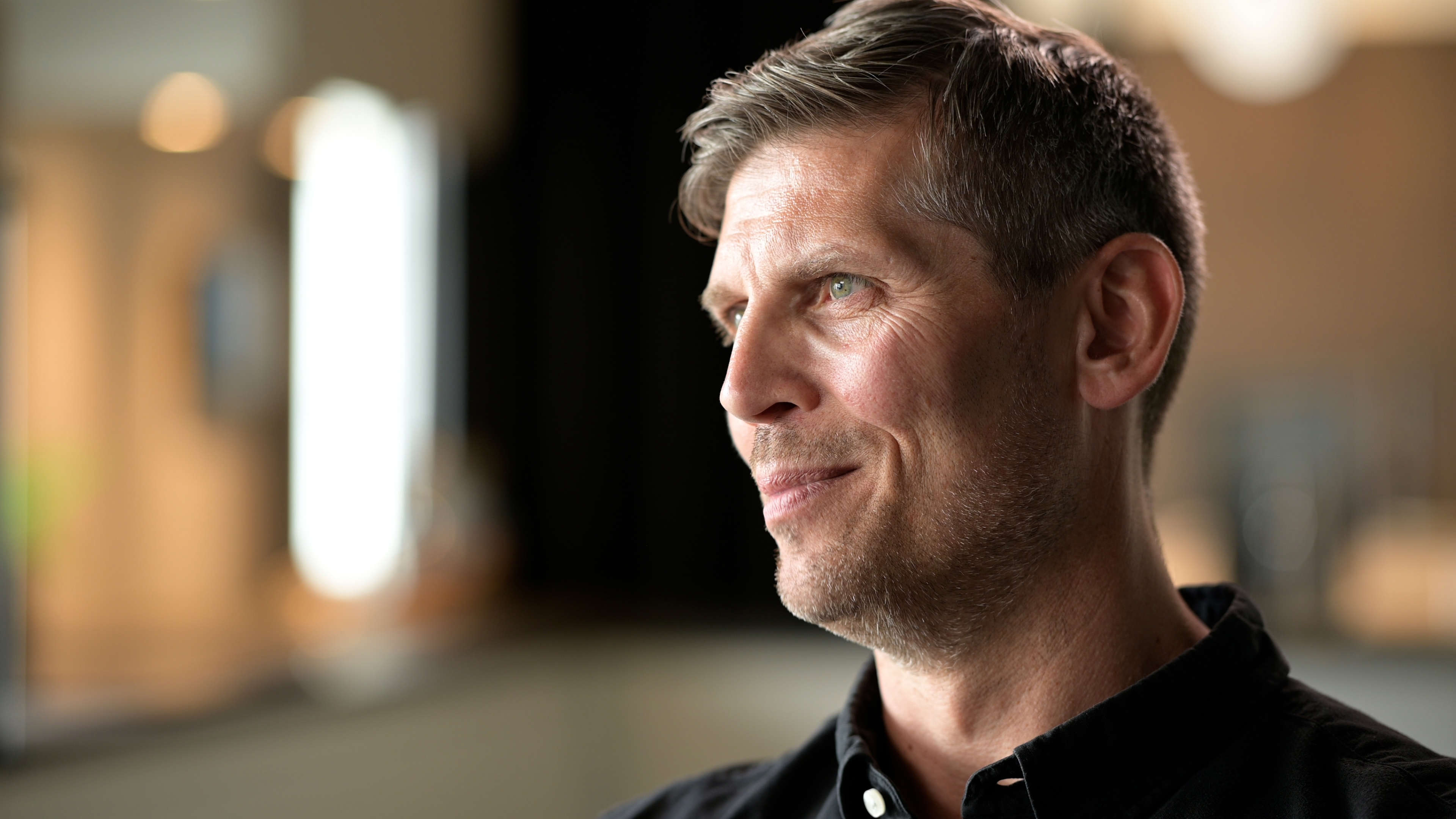
Julie: When we’re looking for a new franchisee, our country team does the first round of interviews with potential candidates. In some countries, like Norway, we use professional recruiters and in other countries, we have Business Development Managers who take on this role. The potential franchisee will always end up speaking to the country manager and if the chemistry is there, the candidate will be invited to our headquarters in Vildbjerg, Denmark. It wasn’t long before Frank was invited to make the trip to Denmark, but first, he did a bit more research at home in Stavanger.
Frank: Before I went to Denmark, I did research and a benchmark in this region. OK, so you know, as I told you before, I had the time for it. So after my coffee in the morning, I went out and visited the other competitors. And what I did was to go in and just take in, you know what meets you when you go into a shop? What is it like? Is a good experience, is it not? How is the sense? How is the emotion you know in yourself when you go in, how do they meet you?
Julie: Right. Was this store still open at that time?
Frank: Or do they meet you? Also this one, but I was at least interested in the others, just to find out where Kvik Stavanger was in the competition.
Julie: Where in the whole hierarchy of all the kitchen stores, right? Yeah.
Frank: It was really important to find out. And so when I went to visit all these other shops and take in what met me when I got in the door, I was like, surprised how many of these shops there were sitting still, they didn't meet you.
And there was like, not everywhere it was a good feeling. Really no. True, it's not to kick someone here, but it's true. And I was thinking, OK. And then I have to go to see Kvik.
And when I did, I actually met people that were on their feet immediately and, you know, wanted to show me around. So it was a good experience as well to meet the old franchisee and his team.
Julie: So you did your research.
Frank: Yeah, I did the research and I also, you know, checked the numbers and accountings and so on. It's possible to do so in Norway - it's open so you can see actually how they are doing. What result they are gaining in you know everything you can actually find out what is the cost for the groceries and and so on. You can quite dive into it.
Julie: Wow, OK. Oh, I didn't know that it was so open.
Frank: Yeah, it's open. I like it.
In this case, you can make a good benchmark for the market, and I did and what I concluded with after this is four or five months towards Christmas in ‘21 was that if I've said this many times and I like to say it, I think if I could choose a kitchen shop, you know concept in this region, I would choose Kvik after what I found. And in that case, you can say I'm lucky because it was this position that was available. This contract was available.
Julie: Ohh, that's good. That's amazing. Do you think that would be true in other countries? I mean you would encourage people to do that same research for themselves in their country?
Frank: Yeah, I think they should. If this possibility exists to do so, they should do it, of course. Because it's not like you just take over something or you want to start up something and everything should be in order. You have to work for it, and if you do the research I think it will amaze you what you find and what is in the numbers. Another thing about research is when you go visit the competition in the market.
A visit to Kvik HQ sealed the deal
Julie: Armed with what he had learned, Frank knew the opportunity was definitely something for him, so it was time to make the trip to Vildbjerg.
At our HQ, we have our Master Store - a fully outfitted model Kvik store, so that the candidate can see what their store will be like. They spend the day with our Senior Vice President of International Market Development and they meet all the teams they will work with - like our Store Construction Team, our One Stop Support team, Marketing, Product Development and Accounting Services, as well as get the opportunity to tour our production facility and see the kitchens being made.
But let’s hear what Frank thought about the visit….
Frank: You really see there's a good, actually a really nice, master store.
But I think for me, it's when you stop outside and you go into Kvik, you see how big it is and at the same time, there’s an intimacy according to the people working there, they're all sitting, you know, next to each other.
And working in this big, big place and it's an open room and then you meet the people and everyone you meet, no matter what their position is like good people. It's really nice to be there and you feel like you're coming home.
No, but to sum it up, it's good to be there to meet the people and you know, see how they are and how they meet you. It's really, really good. So it's a good start again for a long Kvik journey because if you want to be successful, it has to be the two parties - it’s Kvik A/S and it’s you.
Anyhow, the story is I got the contact of course, and it's obvious. And it was a good marriage, yes.

Store of the Year in Norway two years running
Julie: You were already, after two years now, you were store of the year for 2023.
Frank: Right. Yeah. True. Yeah. So and 2022, actually.
Julie: Both years. OK. Oh, I didn't realise. So the first year you took over, you were the Norwegian store of the year.
Frank: Yes, we were and humble to say it, and of course proud. But yeah, we were.
Julie: Yeah, but that's big. Yeah, but you should be proud. It's a lot of work that went into that.
Being store of the year isn’t only about having the most sales, though selling a lot of kitchens is important. It’s also about your store’s score on our yearly Great Place to Work® employee satisfaction survey. As well as your MAZE score. MAZE is the customer satisfaction survey that every customer is asked to fill out, to rate their experience with the store. Frank has excelled from the very beginning at making Kvik Stavanger a Great Place to Work®.
Frank: It's a part of the strategy as well. It's the same as the strategy because our strategy is to have a great place to work. It starts with this, for us, for me in my business review.
This is the top line.
Because if you have a great place to work- people who work together, people who like to come to work and do what they know best. In my opinion, if you have a great place to work, you will get the Maze and through the Maze high score. The results are falling into place.
Julie: Also, because people tell their friends where they got their new kitchen and the word of mouth spreads as well when they're satisfied and happy.
Frank: That's true. So this is like the 123 Step to success in my opinion.
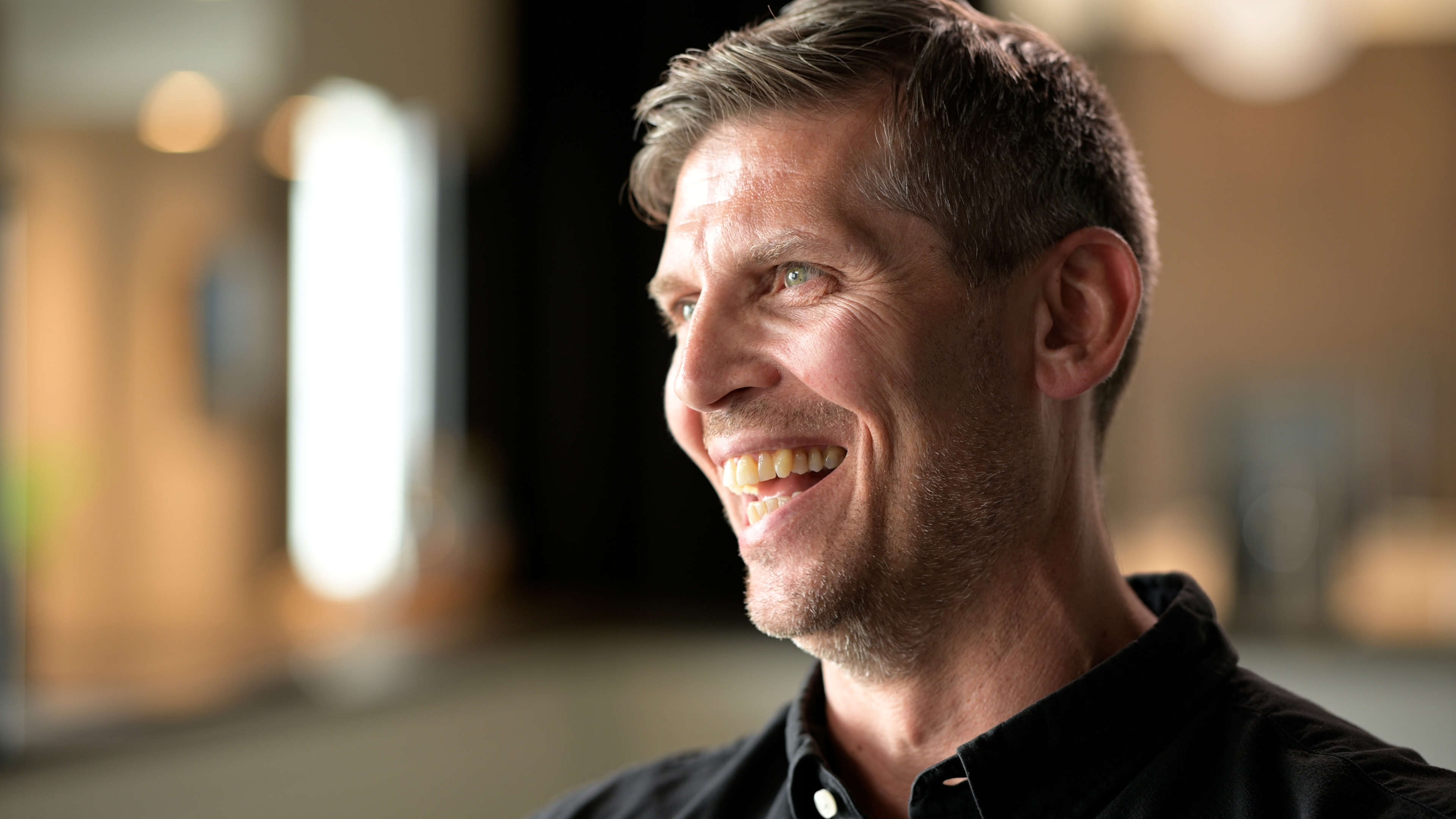
Julie: Do you know how many kitchens you sold all last year?
Frank: It's close to 400.
Julie: 400 kitchens. Yeah. Wow.
Frank: Yeah, not exactly 400, but close to it.
Julie: Close to. Wow. OK.
400 kitchens in one year - that’s more than one kitchen sold every single day! That’s an astonishing number. And for a team of 11 people.
It no doubt helps that the Stavanger area, in the heart of Norway’s oil country, is a prosperous one. On a list of 1000 European cities, Stavanger has the 37th highest GDP per capita. That’s pretty good for a city of 130,000 people.
But let’s dig a little bit into how Frank and his team sell such a phenomenal amount of kitchens…
Frank: So it's a lot of kitchens. But I think we have, we have an approach to this which is a strategic one and it's about the produced orders.
So the focus is truly on the produced order and when you have a strong campaign, you get the sense of urgency in the market and this is how you...
Julie: So people signed the contract and they ordered the kitchen knowing that, OK, we're going to still think about it and we can still change the colour.
Frank: This is so this is sum it up like you did now this is how we're doing it and this makes us capable of selling a whole lot more kitchens for each of our designers, then, if we should do everything in order like you do before you deliver it out, OK, so we do this afterwards in periods where the campaign maybe are not that strong, we fix it for the customers and fix it for ourselves. But in June, which we're referring to now, we're talking about June last year, with all these kitchens, like 92 kitchens or something.
Julie: That was when we had the 40th anniversary campaign.
Frank: Yeah, true. It’s best for the designers and the customers both to find this campaign that they want and they want to do it now is the best for both parties. And I think this is the key to our success.
Julie: Yeah. OK, very interesting.
Frank: So yeah, it's interesting because if you explain this to the customers, they want to buy it sooner than later. Yeah, yeah.
Julie: Wow, great. That's really powerful.
Frank: Thank you.
The Great Place to Work® starts with me
Julie: It’s not only the art of the deal and focusing on produced orders that a franchisee needs to do. They need to have the right team in place to help them do this. It’s obvious from Frank’s success that he has managed this aspect of his business very well. We asked him how he went about it.
Julie: I think a big challenge for some franchisees and maybe for somebody considering it is, how do I find the right people? How do you put that team together that then does say it's a great place to work…that makes it a great place to work.
Frank: Good question. The great place to work starts with me.
Julie: Right. that’s a great attitude!
Frank: But it does really. It truly it really does because I have to put the values in it. What I want, how do I want us to be towards the market, towards our customers and not at least towards ourselves internally.
And this summed up in culture and the culture is the most important value we have. If we have good culture of taking care of each other and you know cheering for each other and by heart want the best for each other. This starts with me and if I do it and if they understand I mean it and I'm honest about it, not just saying it, then it will be like this, at least in a small group like this. It's 11 people including me, so it should be quite easy to do it if you're here often enough and you know, hands on.
I think as a leader when you run a shop like this, you have to find out what level are you on, what is your task here?
Julie: So what is it? Where are your strengths? It sounds like you are very clear as to what your strengths are. And then you're very clear also as to what your people's strengths are, so helping them use their strengths and using yours in doing so is what makes you Store of the Year the first year you took over and the second year, right? I mean the proof is in the pudding as they say.
Frank: That's true. Yeah, true. I think I think this is a good way to sum it up, Julie.
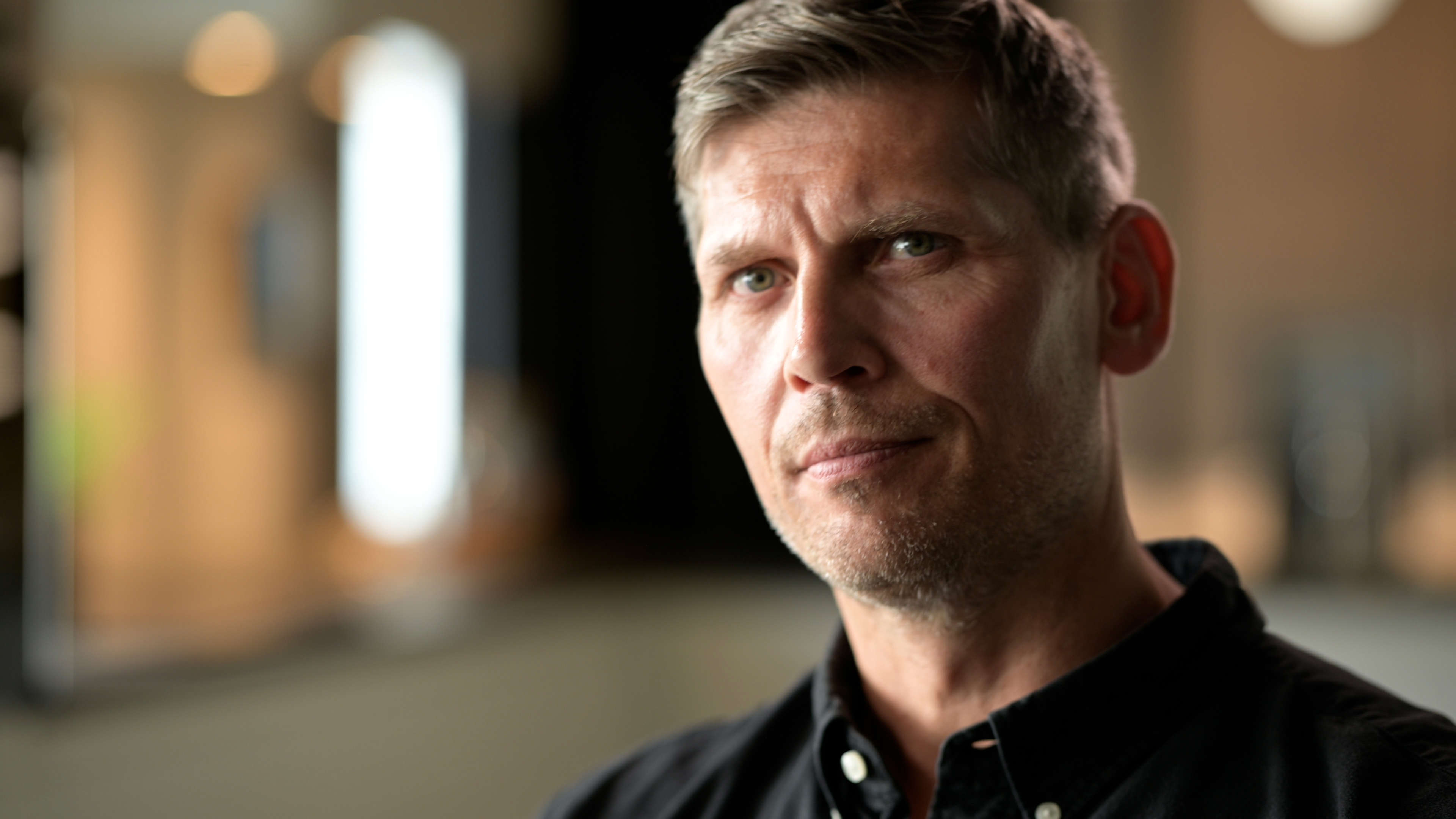
What's it like to take over an existing store?
Julie: When we’re looking for franchisees, we are always looking for some who will open a new store in a new area, a new city or even a new country and some who, like Frank, will take over an existing store. Our franchise contracts run for 5 years at a time and there are always people who are transitioning out as they retire or decide to do something else. Many franchisees renew though and are with us for many years. The franchisee Frank took over from had the business for 17 years.
Frank: But if I have to explain it in short terms, a franchisee from before had a good reputation around this business, good in the Kvik system.
Julie: So you also took over a good store.
Frank: Yeah, I did. And this is like 17 years of success for him and his wife
I have a team. I think we are about to create something good for ourselves because we have a good reputation still and even better than before, and I hope this is connecting more customers to our shop than before and ambassadors.
Julie: And do people come back and they buy a second kitchen for their cabin or…
Frank: True. Yeah, a lot of customers return now. I've been there, this is the third year and I see a lot of customers coming back from before and also in my period again.
Because they are doing, they are. They have sold the house and now there's a new one. Yeah. this drags us straight into this to talk about how important it is with ambassadors and to do your job well. Because to get a new customer, it's more difficult than to keep an old one, it’s a saying and it’s true. Yeah, because the old one you already have. So if you treat them well, the chances for them returning is of course high.
Julie: But of course the kitchen is also something that lasts quite a long time. So unless they sell their house, or unless they buy a cabin where they need it, it's like they don't come back to you in two years in their same house and want a new kitchen. Unless they're really, like, really, like, following the trends on Instagram. (laughs)
Frank: We hope not actually because in two years time is not, you know, about the environment is not so good. But a lot of people come back with their daughters and their sons. They have a house, they have an apartment also. But I think this is all about keeping the customer.
Julie: And creating that relationship with the customer so that it's you they want to come to and not the other 14 brands.
Does that have to do with..I always have to ask about Danish design because that's one part of our concept, right? We really talk about Danish design and surprisingly low prices, but so is Danish design a selling point for you in Norway? Does that have some kind of meaning for people or not really?
Frank: Yes, it really does in my opinion and my experience.
Well. This was also back in the clothing days in the fashion industry. It's the same. They're good at this as well, but Danish design in furniture is, you know, high standards in Norwegian minds, maybe the highest standard actually.
Julie: You might be wondering how it works when you take over a store from the previous franchisee. Kvik has a unique and clever solution to that. We only share the full details with new franchisees once they’ve signed, but we can share a bit of what Frank said about his experience.
Frank: But the contract is like this. I hope you can bring it in the podcast because I think it's important for new franchisees is to know. It's like this, you don't get any goodwill for what you've done. His employees are selling kitchens which will be delivered after the contract is ended.
Julie: Yeah, because for the customer, they don't care who owns the store. They just want their new kitchen.
Frank: Yeah, and they shouldn't.
Julie: Yeah, they shouldn't.
Frank: And the best part of it is when you do it like this, the new franchisee of a shop which has been running before, you have like a flying start on the economy.
Julie: Because you've got kitchens to deliver and you've got, yeah.
Frank: So this makes it easier to take over a shop. It makes it easier financially. And of course, when you have a shop which which has been running, you have a staff, which is like balance in your turnover.
You have 6 persons - designers - and of course there is a turnover that provides support.
Julie: That supports having those people true.
Frank: Right. And when you take over a shop, you have to still provide for this, right? So this is the concept in Kvik and it's really, really smart. And I know after 10/15/20 years, I don't know how long they want me? But if they want me that long.
Julie: I think if you're if you're set to have another great June here, I think they’ll want you for a long time.
Frank: True. No, I have to do my things well in the coming years as well, and this is how it works. Yeah. So, but if I still, if I'm here in 15-20 years.
And I want to stop. And the contract ends is the same for the new franchisee, right? Then I get nothing for what I've done these 20 years. Besides what I've earned during the contract period.
Julie: Interesting.
Frank: For me this is like the really, really good thing about Kvik. It’s so clever, so smart to have this arrangement. Yes, it is. But still you have to invest in the shop because you have to buy all the new kitchens when you redo....
Julie: Yeah, when you redo your shop and there's and when we come out with a new kitchen every September, there's always a switching out, right? So it's not no investment, but it isn't like buying someone’s business from them wholesale.
Frank:It's not the same. No. But you also buy the stuff in the warehouse, of course. Yeah. The storage. Yes, you do. So you have to invest money in it still, but it's easier than if you have to start from scratch.
Julie: Ohh, of course you buy the inventory. Yes, of course you do. And that's if you're taking over a store. I guess we're always looking for people to take over and we also are looking for people to open new stores. So yeah.
Frank: That's true, but when you take over a shop, you are of course dependent on that the previous franchisee has done the job well..
Julie: Because you also inherit their Google reviews.
Frank: That's true, but it was good. I think it was 4.5.
Julie: OK. Oh, that's good. That's good. And then you've surely can kept that.
Frank: Yeah, now it's 4.6, but we're heading for, we're heading for more if we can.
Julie: Excellent, if you possibly can. Yeah, yeah. Excellent.
Frank: But 4.5 is, you know is good in the Google Review. Yes. So they've done a really good job.
Do you have a Kvik kitchen now?
Julie: Yeah, I have to ask you, if you now you said when you said you didn't have a Kvik kitchen, but do you have one now?
Frank: Yes, I do.
Julie: And which one is it?
Frank: So a short story from before. I had a similar kitchen to Mano sera - the black kitchen with the oak structure. And in this warehouse in this storage, there were enough pieces left of Cima in the black oak.
Julie: Ah, the black oak Cima, right? Yeah.
Frank: Yes. And so I could get that. And I have a guy in the store who has made a living on mounting Kvik kitchens. OK, working here. And he is so good at it. And he made it for me. So now I have a combination of Mano Sera and the Cima black oak.
Julie: Oh, nice.
Frank: A lot of customers still want this kitchen.
Julie: Mano sera is the black oak version of Mano, our flagship Danish design kitchen, which we’ve been making since 2004. It also comes in arizona beige, white and dark grey. It’s very cool and trendy to combine two kitchen designs, like Frank has. He used our classic Danish design Cima in black. We no longer make the black version, but you can still get Cima in dark oak and light oak. It makes a great statement as a kitchen island, combined with one of our other designs.
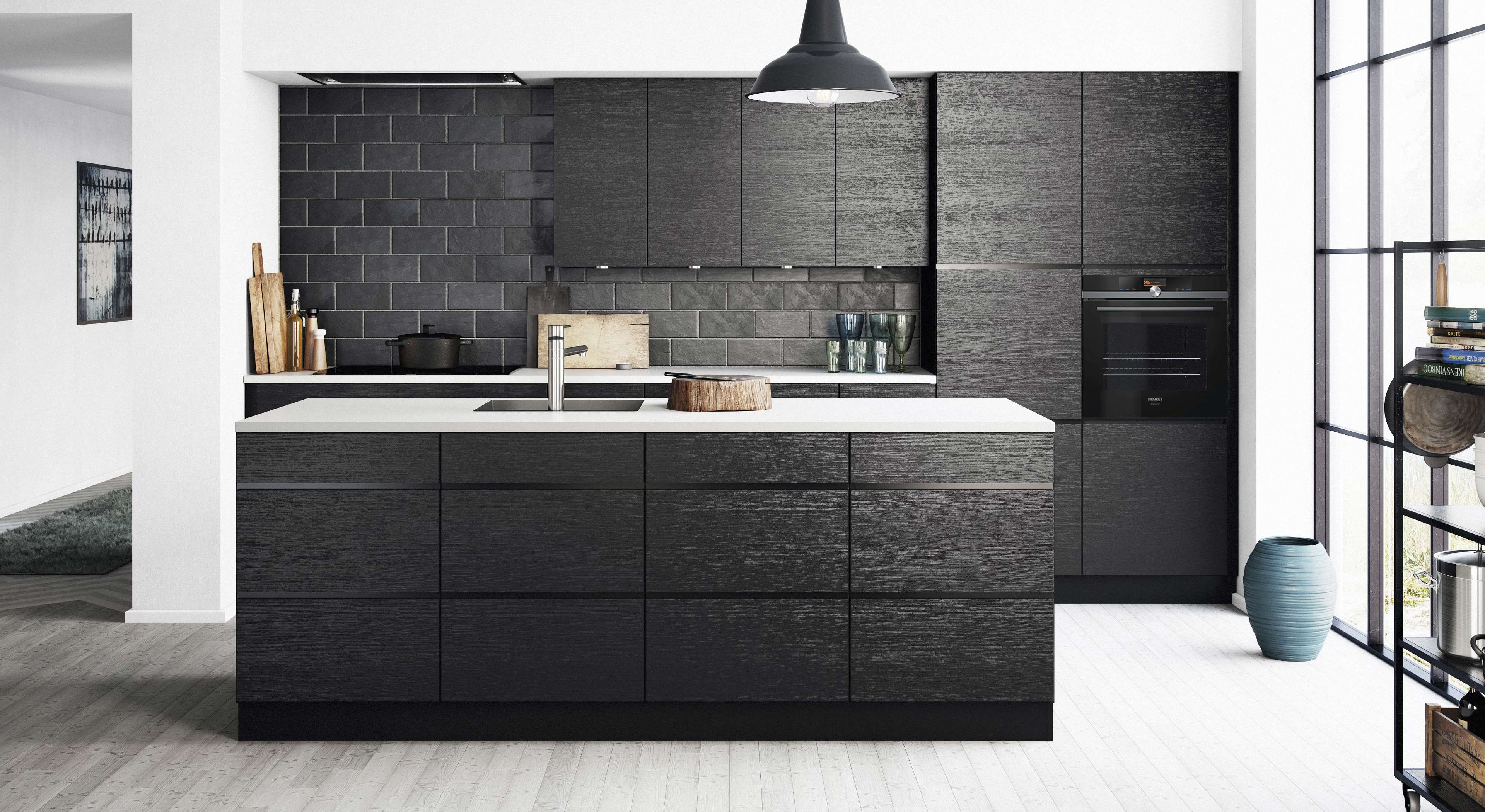
What advice would you give to someone considering a Kvik franchise?
We had to ask Frank one last question before we let him get back to that target of selling a record number of kitchens in June.
Julie: Overall, what would you advise someone considering a Kvik franchise? Is it to do that research or I'll let you answer? I won't try to answer it for you.
Frank: No, it's OK. Yeah, they might do the research because it's always most important that the franchisee shall know what they're what they're heading for. It’s more important than it is for Kvik to know who they're getting actually, because it will be a shock if you're not doing the research.
Julie: What will be a shock about it?
Frank: The shock about it is again, as some of my other colleagues in the KVik have answered you on the same question is about the workload. Is about the hands on. If you're not prepared to be hands on, if you're not prepared to work, the hours needed then you shouldn't do it.
If you think you can own a shop, buy a shop and go sit in your office somewhere else, that's not gonna work. It won't work because I think we're selling capital stuff. You know it's of high value to people. It costs a lot.
And when the people walk in the door in your shop, you should be aware that it's so important that your team knows to take care of the people coming in.
Julie: Yeah, I mean it's the most important room in people’s homes arguably..
Frank: Most of them won't buy the kitchen from you if they're not treated well..
Julie: Yeah, and if they don't trust you. Yeah, they need to trust you.
Frank: Yes, of course not. And I think this is at the same time. This is maybe the thing that you can divide from others in the best way, because there are so many kitchen shops, but the service is valuable, you know? So if you try to be the best on this part, I think this will be a success for you and to do so you have to be here.
Julie: You can't sit in another office somewhere. Yeah.
Frank: Now you have to be here a lot.
Julie: So you're not just working 37 hours a week.
Frank: Now you can ask my wife about that.
Julie: And on that note, we’ll wrap up this episode of The Sociable Kitchen® podcast. We’re very grateful to Frank Hauge for sharing his franchise journey with us and we hope you feel inspired or at least curious to learn more after listening.
A Kvik franchise is a lot of hard work, but it can definitely be worth it. It’s something that anyone can do if you have the right motivation and the right desire to own your own business, but maybe you’re also looking for the security of having a strong team behind you.
If you’re looking for your next big thing - maybe wanting to fulfill that lifelong dream of being in business for yourself? A Kvik franchise might be the way to go. We have a whole team of people who are ready to help you succeed. Visit our website www.kvik.com - and check out the opportunities. With our ambitious expansion plans, there’s probably one in your area.
Thank you for listening! This episode of The Sociable Kitchen® was produced by me, Julie Broberg, and sound engineer Magnus Vad.
The interview was recorded at Kvik Stavanger in Norway with help from Richard Lightbody.
The Sociable Kitchen® is produced at Feedback Studio in the charming old meatpacking district near the harbour in Aarhus.
Dreaming of being your own boss like Frank?
We have ambitious expansion plans and we are always looking for new franchisees to open new stores or take over existing stores, like Frank did.
Curious?
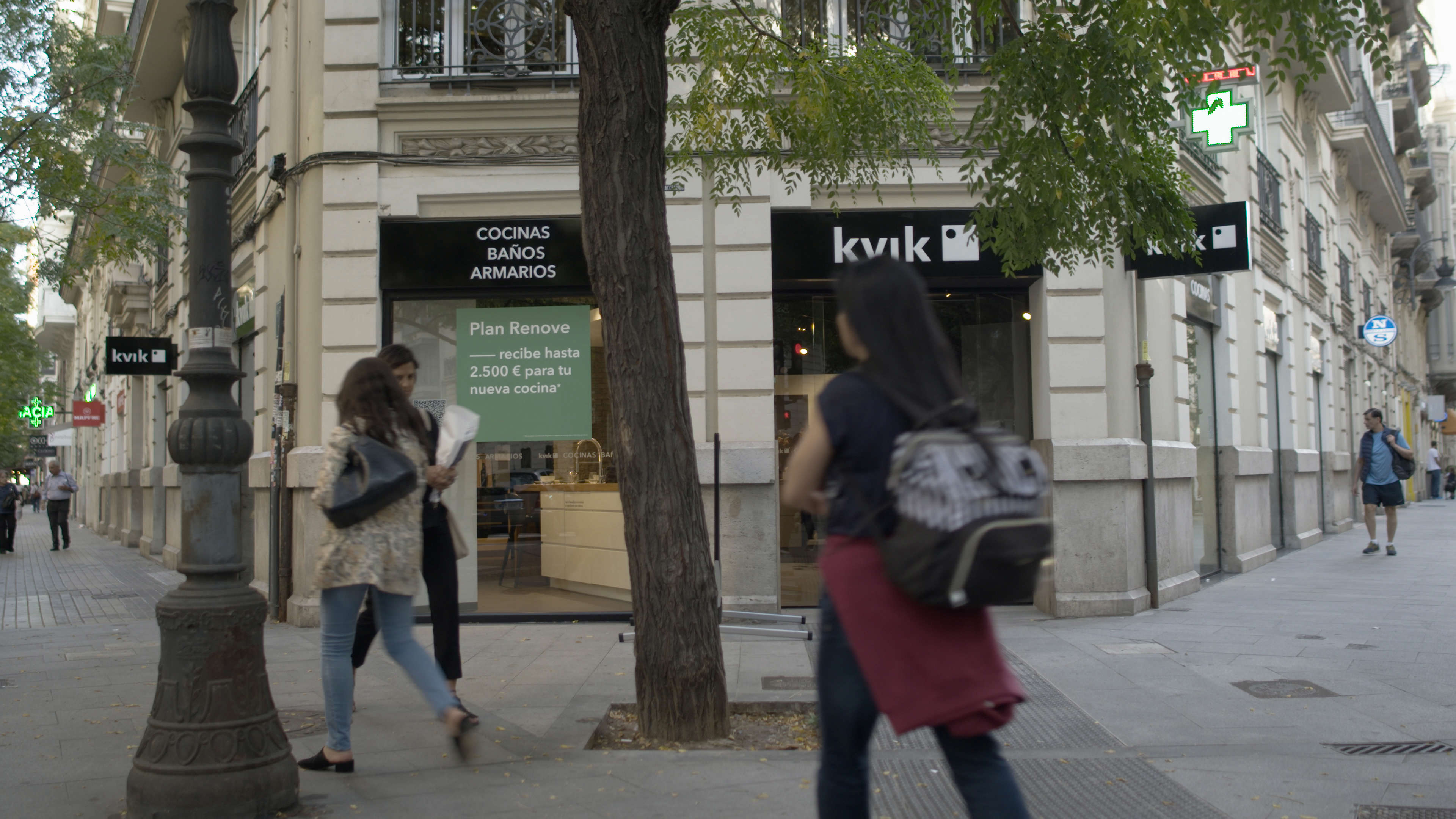
Listen to more stories from our franchisees
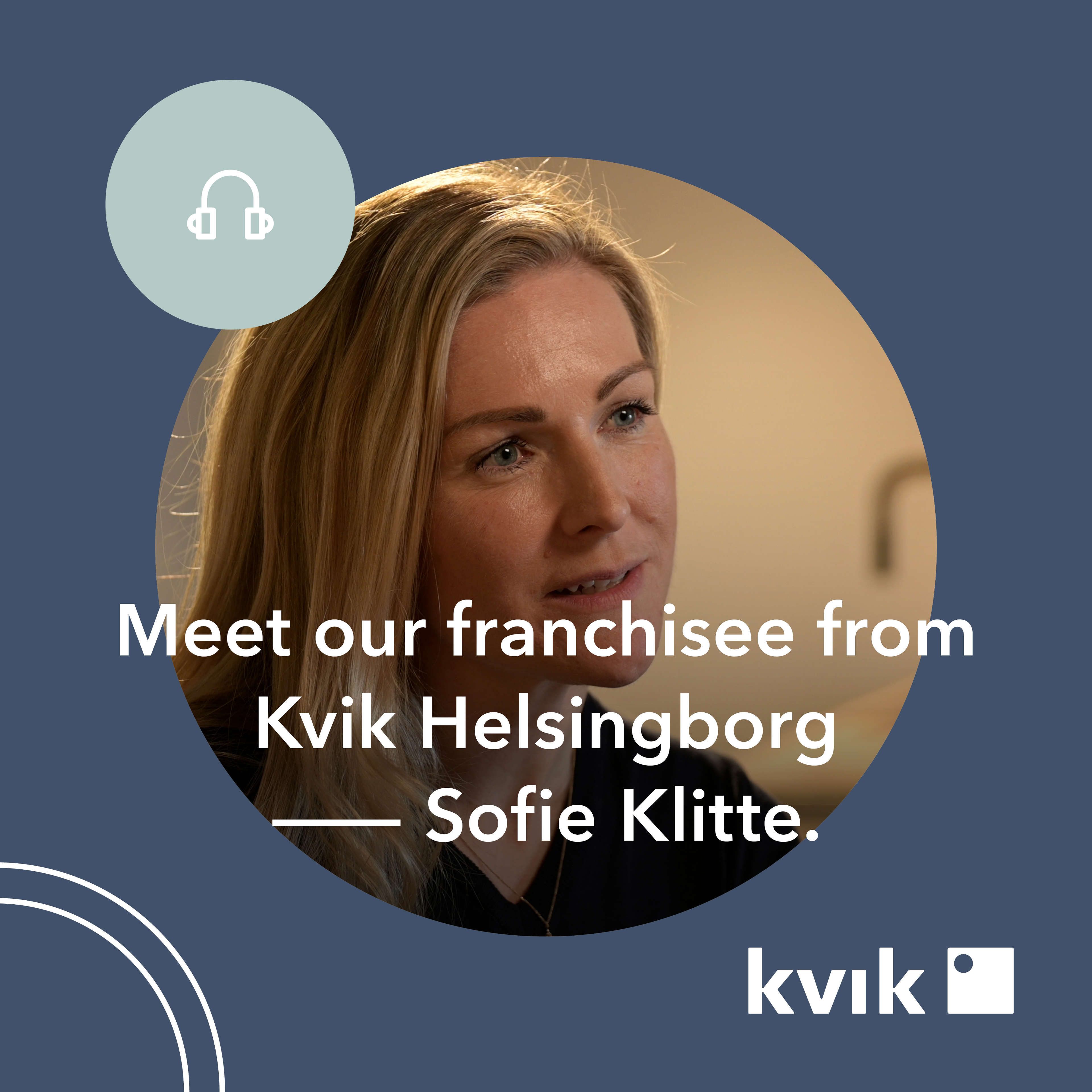
Sofie Klitte — Kvik Helsingborg
Listen on Spotify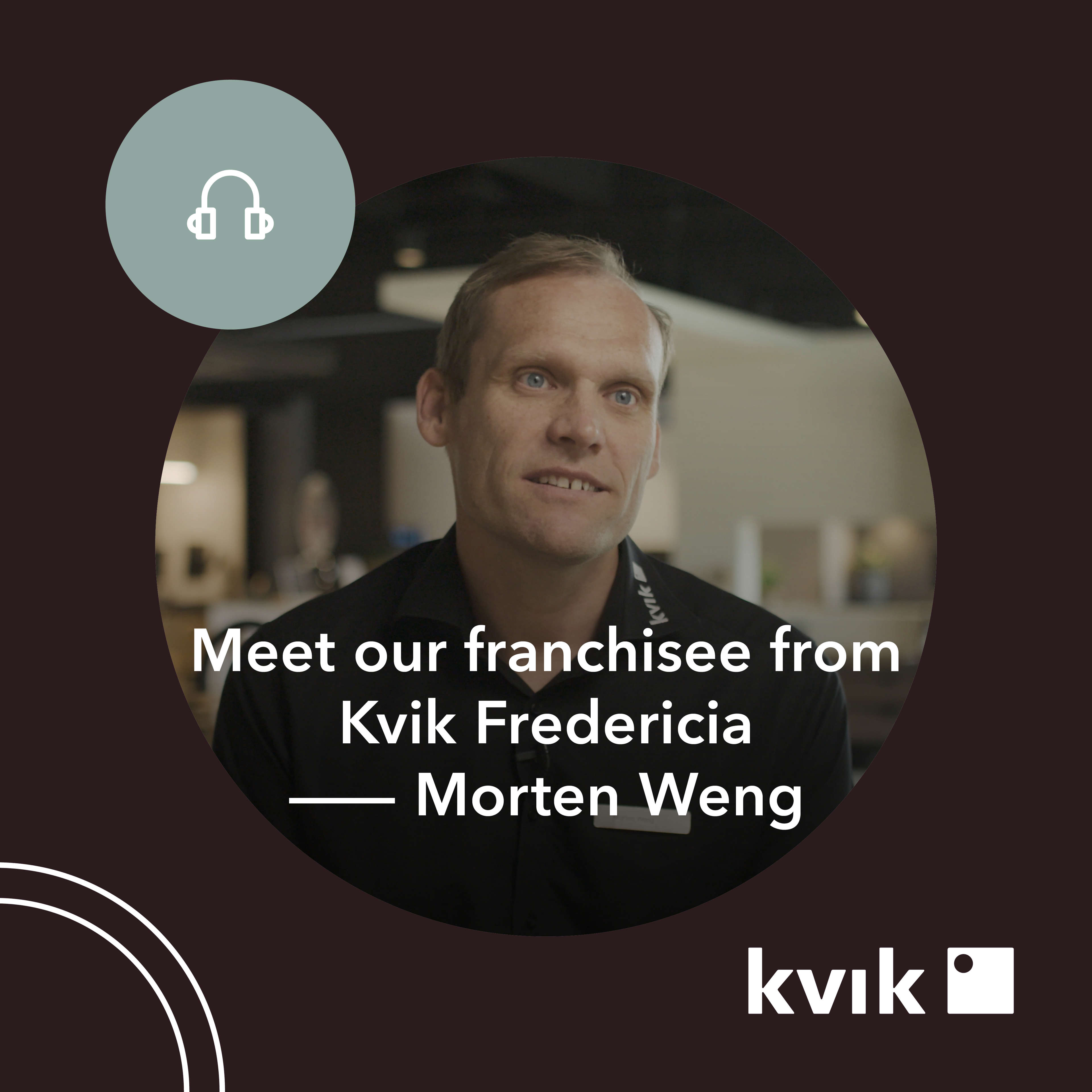
Morten Weng — Kvik Fredericia
Listen on Spotify